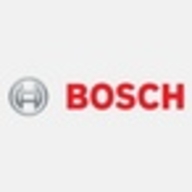

Ubuntu Linux and Bosch IoT Device Management are in the software solutions category, targeting diverse business requirements. Bosch IoT Device Management has the upper hand due to its specialization in IoT features, making it more beneficial for IoT management.
Features: Ubuntu Linux offers a stable open-source platform applicable to various applications, providing extensive community support and flexibility. Bosch IoT Device Management is known for advanced IoT management, offering capabilities to update, secure, and manage connected devices efficiently, which stands out in IoT-specific functions.
Ease of Deployment and Customer Service: Ubuntu Linux features an easy installation process with self-service resources, promoting user autonomy. Bosch IoT Device Management provides a comprehensive service model with direct support, focusing on seamless integration with IoT ecosystems, catering to complex IoT networks.
Pricing and ROI: Ubuntu Linux minimizes initial setup costs as an open-source solution, offering ROI through reduced software expenses. Bosch IoT Device Management's pricing reflects its IoT capabilities, with higher initial costs but yielding significant ROI via improved device management efficiency and security over time.
| Product | Market Share (%) |
|---|---|
| Bosch IoT Device Management | 0.1% |
| Ethereum Validator Node | 6.1% |
| Revvity Signals Synergy | 5.8% |
| Other | 88.0% |
| Product | Market Share (%) |
|---|---|
| Ubuntu Linux | 11.5% |
| Rocky Linux | 14.3% |
| Windows Server | 10.0% |
| Other | 64.2% |

| Company Size | Count |
|---|---|
| Small Business | 83 |
| Midsize Enterprise | 21 |
| Large Enterprise | 53 |
Bosch IoT Device Management, supports you in controlling and keeping your devices up to date: on a daily, monthly or annual basis, or in case of certain events; be it for white goods, security alarms, vehicle devices, or large industrial machines.
Ubuntu Linux is an open-source platform known for its robust security, ease of use, and rapid performance. Its lightweight design and comprehensive support system make it ideal for diverse IT environments, providing seamless management and scalability options.
Ubuntu Linux stands out with its open-source nature that allows extensive customization and access to a broad range of free software. It is widely praised for its stability and a vast package repository offering regular updates, enhancing its usefulness across different sectors. The platform is equipped with a lightweight design and excellent community support, making it scalable and easy to manage. While it could improve in areas like Windows software compatibility and user interface refinement, its benefits in enterprise management and development projects are undeniable. Improved documentation, better hardware integration, and enhanced third-party application compatibility are additional focal points to consider.
What are the key features of Ubuntu Linux?
What benefits should be considered from reviews?
Ubuntu Linux is prominently implemented in industries for tasks such as server management, application deployment, and software development. Its resource efficiency and open-source tool compatibility make it a favorite for programming, research, and cybersecurity. Companies frequently use it for web hosting, cloud services, and managing multi-user enterprise solutions.
We monitor all AWS Marketplace reviews to prevent fraudulent reviews and keep review quality high. We do not post reviews by company employees or direct competitors. We validate each review for authenticity via cross-reference with LinkedIn, and personal follow-up with the reviewer when necessary.